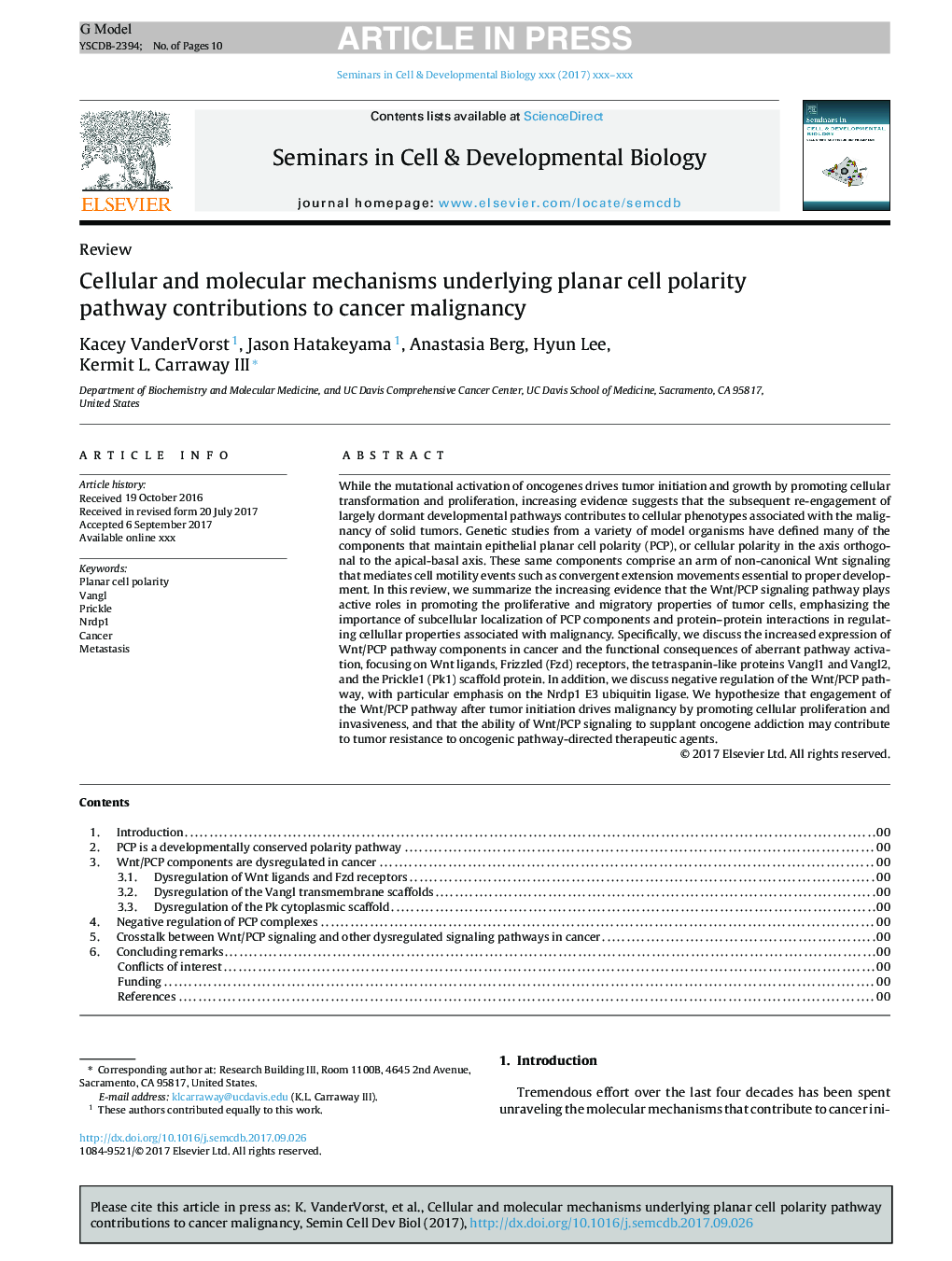| کد مقاله | کد نشریه | سال انتشار | مقاله انگلیسی | نسخه تمام متن |
|---|---|---|---|---|
| 8479506 | 1551342 | 2018 | 10 صفحه PDF | دانلود رایگان |
عنوان انگلیسی مقاله ISI
Cellular and molecular mechanisms underlying planar cell polarity pathway contributions to cancer malignancy
ترجمه فارسی عنوان
مولکول های سلولی و مولکولی، زیرمجموعه پلاریک سلول پلاریزی مسیر کمک به سرطان بدخیمی است
دانلود مقاله + سفارش ترجمه
دانلود مقاله ISI انگلیسی
رایگان برای ایرانیان
کلمات کلیدی
موضوعات مرتبط
علوم زیستی و بیوفناوری
بیوشیمی، ژنتیک و زیست شناسی مولکولی
بیولوژی سلول
چکیده انگلیسی
While the mutational activation of oncogenes drives tumor initiation and growth by promoting cellular transformation and proliferation, increasing evidence suggests that the subsequent re-engagement of largely dormant developmental pathways contributes to cellular phenotypes associated with the malignancy of solid tumors. Genetic studies from a variety of model organisms have defined many of the components that maintain epithelial planar cell polarity (PCP), or cellular polarity in the axis orthogonal to the apical-basal axis. These same components comprise an arm of non-canonical Wnt signaling that mediates cell motility events such as convergent extension movements essential to proper development. In this review, we summarize the increasing evidence that the Wnt/PCP signaling pathway plays active roles in promoting the proliferative and migratory properties of tumor cells, emphasizing the importance of subcellular localization of PCP components and protein-protein interactions in regulating cellullar properties associated with malignancy. Specifically, we discuss the increased expression of Wnt/PCP pathway components in cancer and the functional consequences of aberrant pathway activation, focusing on Wnt ligands, Frizzled (Fzd) receptors, the tetraspanin-like proteins Vangl1 and Vangl2, and the Prickle1 (Pk1) scaffold protein. In addition, we discuss negative regulation of the Wnt/PCP pathway, with particular emphasis on the Nrdp1 E3 ubiquitin ligase. We hypothesize that engagement of the Wnt/PCP pathway after tumor initiation drives malignancy by promoting cellular proliferation and invasiveness, and that the ability of Wnt/PCP signaling to supplant oncogene addiction may contribute to tumor resistance to oncogenic pathway-directed therapeutic agents.
ناشر
Database: Elsevier - ScienceDirect (ساینس دایرکت)
Journal: Seminars in Cell & Developmental Biology - Volume 81, September 2018, Pages 78-87
Journal: Seminars in Cell & Developmental Biology - Volume 81, September 2018, Pages 78-87
نویسندگان
Kacey VanderVorst, Jason Hatakeyama, Anastasia Berg, Hyun Lee, Kermit L. III,
